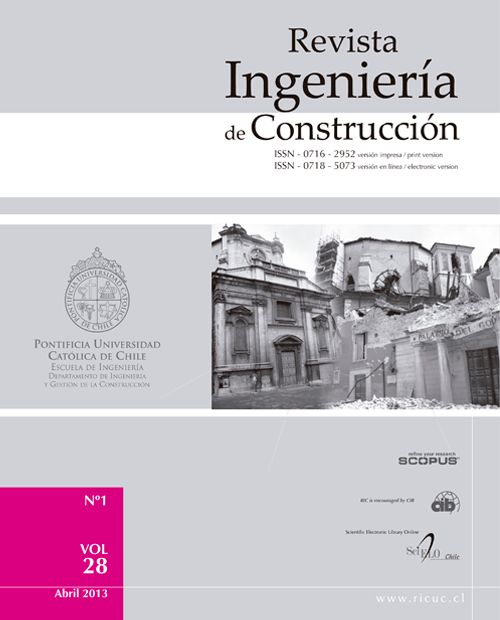Chloride corrosion of embedded reinforced steel on concrete elaborated from recycled coarse aggregates and supplementary cement materials
DOI:
https://doi.org/10.4067/S0718-50732013000100002Keywords:
recycled concrete, corrosion, electric resistivity, electro-chemical impedance spectroscopy, chloride permeabilityAbstract
As a result of contributive and sustainable strategies on concrete industry, researches are presently being developed, which are focused on improving durability of reinforced concrete structures as well as partially or completely replacing their components by recycled materials. In the case of steel bars, corrosion is considered as the major durability menace to reinforced concrete. The present research employed coarse aggregate from recycled concrete and supplementary cement materials, which are byproducts of industrial processes, such as fly ashes and silica fume, for the elaboration of sustainable concretes and for the evaluation of their behavior faced to chlorides exposure. Compressive resistance, electric resistivity, loading transfer resistance and ion chloride permeability resistance are the parameters which were determined from the resulting test specimens, thus specifying the minimum required properties for concrete, in accordance with regulations that guarantee its durability faced to chloride actions. From results obtained it is concluded that concrete elaborated using a 100% of recycled coarse aggregate and supplementary cement materials improves its behavior as far as resistance and durability are concerned, in comparison to conventional concrete.


